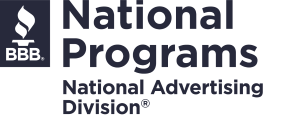
New York, NY – June 26, 2023 – The National Advertising Division (NAD) of BBB National Programs determined that Simply Gum, Inc. provided a reasonable basis for claims that its Simply Gum brand chewing gum is “made with chicle” and “natural” and concluded that, in context, Simply Gum’s “simpler better” claim was puffery. However, NAD recommended that the advertiser:
During the proceeding the advertiser permanently discontinued or modified several challenged claims. NAD did not review the discontinued claims or pre-modification claims on the merits.
The challenge, which included claims appearing on Simply Gum’s website and on its product packaging, was initially brought by Perfetti Van Melle USA, Inc. However, Simply Gum declined to participate in the industry self-regulation process and the matter was referred to the FTC. Subsequently, the advertiser agreed to participate in the current inquiry, which NAD reviewed through its routine monitoring program.
“Made with Chicle”
Simply Gum makes several claims that, unlike conventional chewing gum, its gum is made with chicle. Chicle, a natural gum for use in gum base, is the coagulated latex (or sap) of the Manilkara Zapota tree, also known as the Sapodilla tree, or in Mexico where Chicle is mainly harvested, as the Chicozapote tree. NAD concluded that the advertiser provided a reasonable basis for these chicle claims.
However, because there was no evidence that the source trees for the chicle in the advertiser’s gum base are sustainably cultivated or the tree sap sustainably harvested, NAD recommended that Simply Gum discontinue use of the term “sustainable” in the advertising of its chicle ingredient or modify such claims to better fit the evidence.
“Natural”
Based on evidence that the advertiser’s gum products are made with natural ingredients, NAD concluded that Simply Gum had a reasonable basis for its “natural” claims, including the use of “natural” as a standalone headline on its packaging and the claim “we use only natural ingredients in our gum.”
“Synthetics”
NAD determined that the advertiser had a reasonable basis to support claims that Simply Gum products do not contain synthetic ingredients. However, NAD found that the record does not support claims related to specific ingredients in conventional chewing gum.
Therefore, NAD recommended that Simply Gum modify its synthetics claims to better fit the evidence.
“Plastics”
NAD found that Simply Gum’s claims that “gum base” in conventional chewing gum was “code for plastic” or “code for up to 46 different chemicals including the plastic used in white glue, car tires and plastic water bottles” mischaracterized the FDA’s list of permissible gum base ingredients. Therefore, NAD recommended that the advertiser discontinue those claims.
Further, NAD determined that use of the term “plastic” in Simply Gum’s advertising – both in the monadic and comparative contexts – conveyed misleading and disparaging messages about conventional gum. NAD noted that the advertiser did not provide any evidence that the synthetic ingredients used in conventional gum base are unsafe or that the advertiser’s products are healthier than conventional gums.
NAD also concluded that Simply Gum’s “plastic free” (and other “no plastics” claims) conveyed implied messages that its product was environmentally superior to conventional gum – messages that were not supported by the evidence.
For these reasons, NAD recommended that Simply Gum discontinue its “plastic free” claim and modify its remaining “plastics” claims to avoid conveying the unsupported implied claims that its product is healthier, safer, and/or more environmentally friendly than regular chewing gum.
“Simpler, Better”
Because Simply Gum’s “simpler, better” claim is not tied to a specific, quantifiable benefit of the advertiser’s product nor is there any reference to competing brands, NAD determined that consumers would understand use of the word “better” as merely an expression of manufacturer pride. Therefore, NAD concluded that standing alone and without a context that calls up or disparages competing products or their ingredients, the “simpler better” claim was puffery and did not require substantiation.
In its advertiser statement, Simply Gum stated that it although it “respectfully disagrees with NAD’s decision regarding the ‘plastic free’ claim . . . it supports the NAD self-regulatory process and agrees to comply with the NAD recommendations.”
All BBB National Programs case decision summaries can be found in the case decision library. For the full text of NAD, NARB, and CARU decisions, subscribe to the online archive.
This shall not be used for advertising or promotional purposes.
About BBB National Programs: BBB National Programs, a non-profit organization, is the home of U.S. independent industry self-regulation, currently operating more than a dozen globally recognized programs that have been helping enhance consumer trust in business for more than 50 years. These programs provide third-party accountability and dispute resolution services that address existing and emerging industry issues, create a fairer playing field for businesses, and a better experience for consumers. BBB National Programs continues to evolve its work and grow its impact by providing business guidance and fostering best practices in arenas such as advertising, child-and-teen-directed marketing, data privacy, dispute resolution, automobile warranty, technology, and emerging areas. To learn more, visit bbbprograms.org.
About the National Advertising Division: The National Advertising Division (NAD) of BBB National Programs provides independent self-regulation and dispute resolution services, guiding the truthfulness of advertising across the U.S. NAD reviews national advertising in all media and its decisions set consistent standards for advertising truth and accuracy, delivering meaningful protection to consumers and leveling the playing field for business.